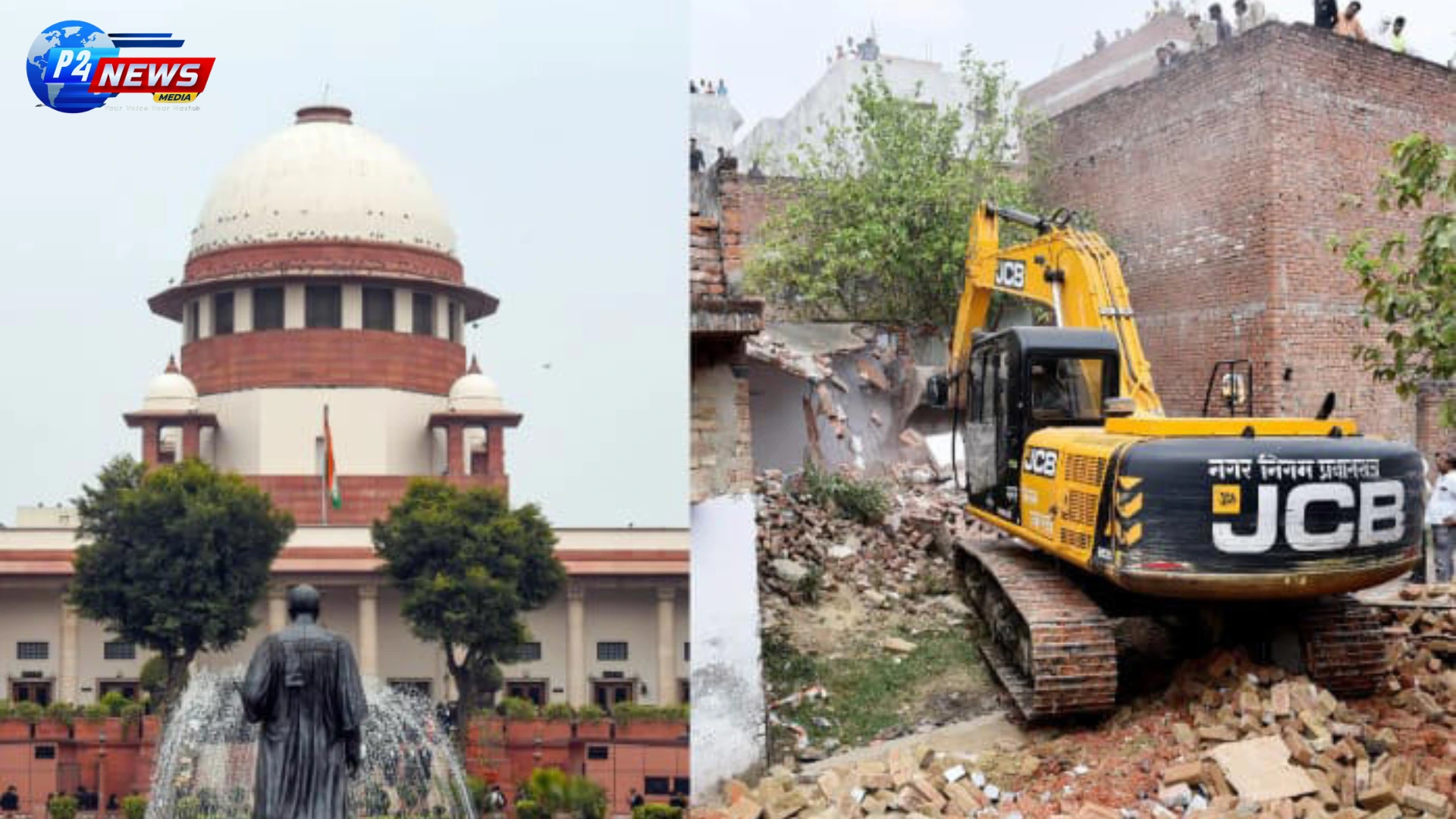Chief Justice DY Chandrachud has condemned the practice of selective property demolitions, emphasizing the need for accountability among state officials and the protection of citizens' rights to their homes.
Chief Justice DY Chandrachud has condemned the practice of selective property demolitions, emphasizing the need for accountability among state officials and the protection of citizens' rights to their homes.
In a powerful statement made during his concluding judgment as Chief Justice of India, DY Chandrachud has firmly criticized the alarming trend of selective demolitions, often referred to as 'bulldozer justice.' This term signifies actions taken against citizens as a form of reprisal, which the Chief Justice describes as entirely unacceptable in a nation that upholds the rule of law. Chandrachud's remarks highlight the significant responsibility of state officials to protect citizens' rights, particularly in terms of their homes and livelihoods.
Justice Chandrachud underscored the intrinsic value of safety and security in one’s own home, declaring it a fundamental right that warrants protection. He asserted that no citizen's voice should be silenced by the fear of unlawful destruction of their property. The Chief Justice emphasized that every individual is entitled to due process and procedural safeguards before any state action is taken against alleged illegal constructions or encroachments.
Addressing a notable case concerning the demolition of a house in Maharajganj, Uttar Pradesh, in 2019, Justice Chandrachud stated, “Justice through bulldozers is not recognized within any civilized legal framework.” He pointed out the immense risks posed by allowing high-handed behavior from state officials, warning that it could lead to indiscriminate actions against properties based on extraneous motives rather than legal justification. This warning reflects a critical need for accountability in government actions.
The Supreme Court has been increasingly involved in cases spotlighting the controversial practice of using bulldozers to demolish properties of individuals accused of crimes. This method, labeled 'bulldozer justice,' has ignited heated debates and drawn significant backlash from various political factions. As a response to these ongoing challenges, Justice Chandrachud called for stringent measures against those in power who partake in or endorse such unlawful demolitions.
In his November 6 verdict, which has since been published on the court’s website, the Chief Justice introduced minimum procedural thresholds that must be adhered to prior to any state-led demolitions. He stated categorically that the state is obliged to observe due legal processes when addressing illegal encroachments or unauthorized constructions. “Bulldozer justice is simply unacceptable under the rule of law,” Chandrachud stated, adding that allowing such practices would gravely undermine the constitutional right to property as outlined in Article 300A of the Indian Constitution.
Justice Chandrachud's judgment serves as a poignant reminder of the need for public accountability among government officials. He urged that those who execute or approve unlawful demolitions should face disciplinary measures and possible criminal charges. As he defined it, any activity concerning public or private properties must adhere strictly to legal protocols and due process. This insistence on accountability aligns with the principles necessary for a just and law-abiding society.
The ongoing cases before the Supreme Court involve serious allegations of unlawful property demolitions, including that of journalist Manoj Tibrewal Akash's ancestral home, which was reportedly dismantled in 2019 without adequate notice or just compensation. These cases further highlight the escalating issues surrounding the governance of property rights in India.
As Justice DY Chandrachud prepares to retire on November 10, he leaves behind a legacy characterized by his commitment to justice, legal integrity, and the protection of constitutional rights. His tenure as the 50th Chief Justice of India, which began in November 2022, has been marked by groundbreaking rulings and a staunch defense of societal values and citizens’ rights. The future of 'bulldozer justice' now faces an uncertain path, with the judiciary poised to play a crucial role in determining the balance between state authority and individual rights.
'
Like
Dislike
Love
Angry
Sad
Funny
Pray
9th Ayurveda Day in Melbourne: A Celebration of Ayurvedic Innovations and Global Health Impact
November 10, 2024Australia’s Terror Alert Jumps to ‘Probable’: What You Need to Know About the Increased Risk
August 05, 2024🍪 We Value Your Privacy and Experience Hi there! We use cookies to enhance your browsing experience, provide personalized content, and analyze site traffic. By continuing to use our site, you consent to our use of cookies.







Comments 0